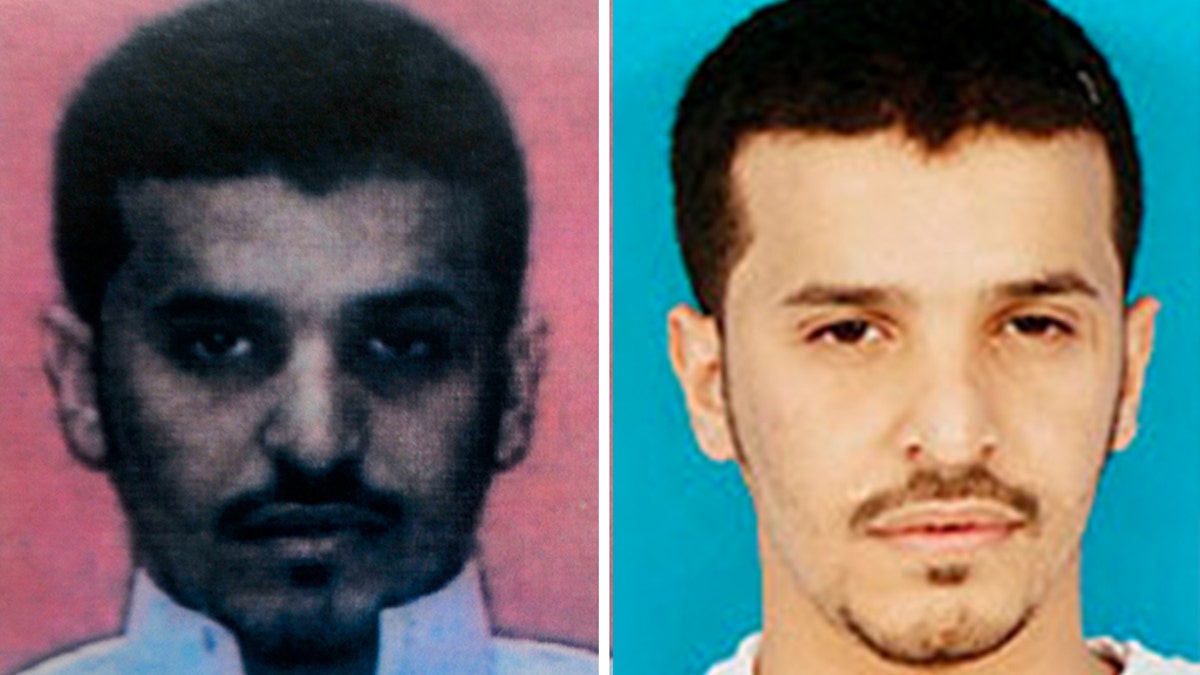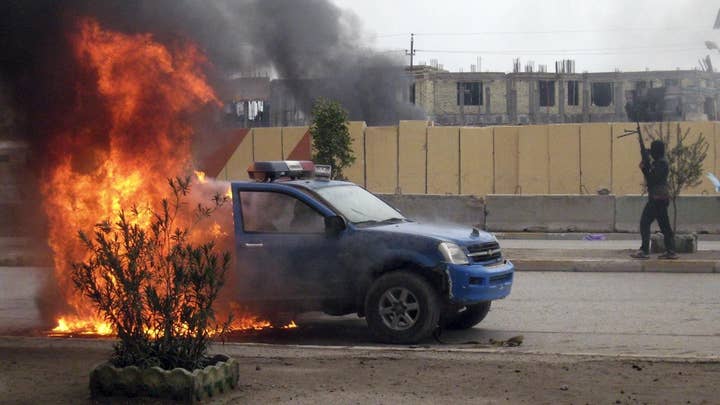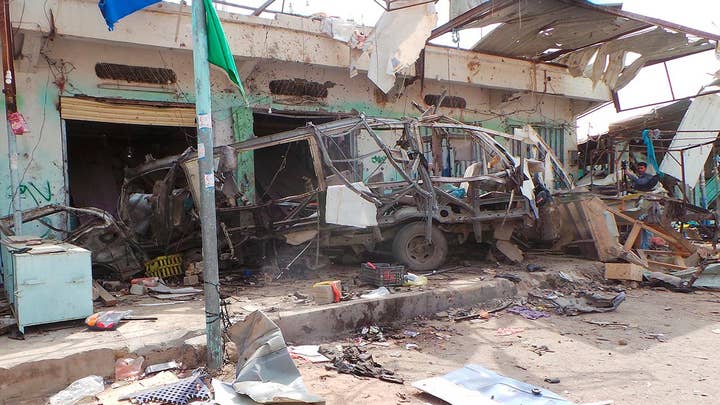
Ibrahim al-Asiri was one of the most wanted Al Qaeda suspects by the US (Yemeni Police via REUTERS/FBI)
A top Al Qaeda bomb maker who masterminded a plot to bring down an airliner over Detroit on Christmas Day 2009 was killed in a U.S. drone strike in Yemen last year, a senior U.S. official told Fox News Monday.
The Associated Press previously reported that Ibrahim al-Asiri was dead, citing a tribal leader and an Al Qaeda-linked source who said that he was killed in the governate of Marib in eastern Yemen.
The tribal leader said that al-Asiri was struck by the drone, along with two or four of his associates, as he stood beside his car.
Al Qaeda itself has remained silent about its top bomb maker. Instead of the typical "eulogies" posted on militant websites, the Yemeni source said the group is trying to hunt down suspected "spies" who might have tipped off the U.S. on his whereabouts leading up to the strike.
Confirmation of al-Asiri's death to Fox News and the AP follows a United Nations report last week stating that the 36-year-old Saudi national may have been killed in the second half of 2017.
Al-Asiri is believed to have built the underwear bomb that a Nigerian man, Umar Farouk Abdulmutallab, tried to detonate on board a Northwest Airlines flight to Detroit from Amsterdam in December 2009. He is also behind a plot to place bombs hidden in printer cartridges on U.S.-bound cargo jets in 2010.
U.S. intelligence has believed that al-Asiri and his confederates were constantly working to improve their bomb designs so that they could get past airport security.

Umar Farouk Abdulmutallab, the so-called 'underwear bomber' (AP)
In July 2014, the Transportation Security Administration (TSA) banned uncharged mobile phones and laptops from flights to the United States that originated from Europe and the Middle East.
Al-Asiri, who studied chemistry in the Saudi capital of Riyadh, even once placed explosives inside his younger brother's clothes in a plot to assassinate Saudi Arabia's interior minister, Mohammed bin Nayef, in 2009. The brother, Abdullah, died in the explosion while the top U.S. counterterrorism ally was slightly wounded.
The U.S. has long viewed Al Qaeda's Yemeni branch as its most dangerous affiliate, in part because of al-Asiri's expertise in explosives. Since 2014, the U.S. has offered $5 million for information leading to his capture. He is thought to have escaped death many times in U.S. drone strikes in Yemen.
Al-Asiri's last known statement was a 2016 audio message threatening Saudi Arabia and the U.S. after the kingdom killed 47 Al Qaeda suspects in one of its largest mass executions since 1980.
Vowing to continue battling America, he said at the time that the Saudis would be dealt with in a "different way," without elaborating.
Wanted by the U.S., Saudi Arabia and Interpol, al-Asiri fled his native Saudi Arabia — home of 15 of the 19 suspected hijackers in the Sept. 11, 2001 terrorist attacks — for Yemen, along with other militants escaping a crackdown in the kingdom.
Once in Yemen, they merged with local Al Qaeda militants who escaped from a Yemeni prison in 2006 to form Al Qaeda in the Arabian Peninsula, or AQAP.
Since 2015, Al Qaeda has exploited the turmoil in Yemen as a Saudi-led coalition imposed an air, land, and sea blockade and waged war on Yemen's Iranian-aligned rebels, known as Houthis, who gained control of the capital, Sanaa, forcing President Abed Rabbo Mansour Hadi to flee the country.
Amid the chaos, AQAP has expanded its territory, occupied entire cities, looted security camps, banks, and collected taxes from locals.
The Saudi-led coalition, in particular the United Arab Emirates (UAE), later claimed to have defeated Al Qaeda and forced it to pull out of the territories under its control.
An Associated Press investigation however revealed that the coalition struck a series of deals with Al Qaeda, offering tribal leaders cash to pay off militants to give up territory without fighting, something both the U.S., the UAE, and Al Qaeda have denied.
The U.N. report also said that Al Qaeda's global network "continues to show resilience," with its affiliates and allies much stronger than the Islamic State (ISIS) group in some places, including Somalia, Yemen, South Asia and Africa's Sahel region.
It added that Yemen's lack of a strong central government "has provided a fertile environment for" AQAP's expansion and estimated its strength inside Yemen at between 6,000 and 7,000 fighters — compared to ISIS militants who only number between 250 to 500 fighters.
Fox News' Lucas Tomlinson and The Associated Press contributed to this report.











































